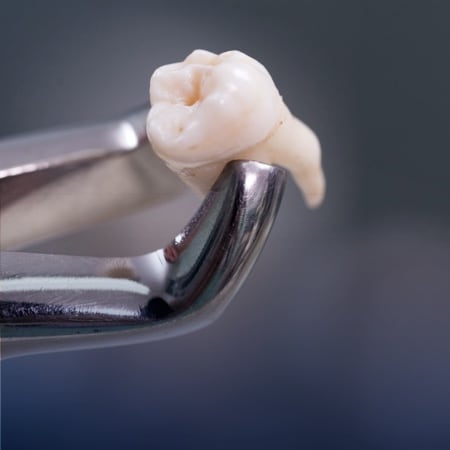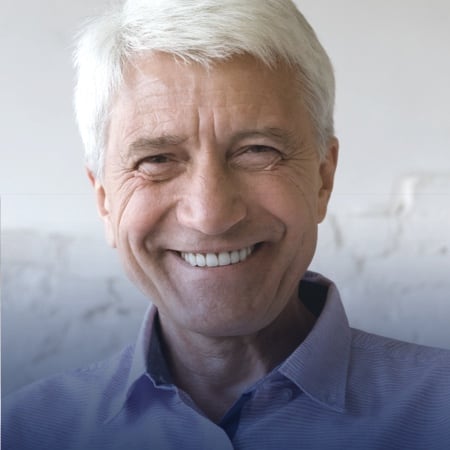If you’re undergoing surgery for your mouth or jaw, you can bet that an oral and maxillofacial surgeon will be taking part. But the name can be confusing. Is this person a dentist or a doctor? Do they perform surgery on the mouth or the face? The answer is both.
In many cases that require dental or oral surgery, your dentist will request the expertise of an oral and maxillofacial surgeon. Let’s explore what the exact role of this medical professional is, and what situations they are typically involved in.
What Does an Oral & Maxillofacial Surgeon Do?
An oral and maxillofacial surgeon (OMFS) is a specially trained surgeon who focuses on correcting medical issues of the mouth and face. They combine expertise in both dentistry and medical surgery to treat patients with problems related to the mouth, jaw, face, muscles of the face, bone, and skin. An OMFS will complete dental school and then go on to a hospital-based residency.
Requirements to Become an OMFS
Becoming an OMFS is a long journey. All certified oral and maxillofacial surgeons must undergo intense educational and residency requirements. The exact licensing procedures vary by province, but the requirements and education for OMFS designation is the same across Canada.
There are 6 Canadian Training Centres for candidates to complete their education as an OMFS. One of the centres includes the University of Toronto, where CVOS Oral Surgeons participate in the training and education for aspiring oral surgeons. The additional program following dentistry school typically lasts between 4-6 years. Some OMFS programs are dual-degree, meaning that the candidate earns a medical degree alongside their DDS.
OMFSs possess the following minimum education and experience to practice in Canada:
- Undergraduate degree
- Doctor of Dental Surgery (DDS)
- Completion of National Dental Examining Board exams
- Completion of the Oral and Maxillofacial Surgery residency program
- Successful writing of the National Dental Specialty Examination (NDSE) in Oral and Maxillofacial Surgery

Reasons You May Need an OMFS
An oral and maxillofacial surgeon can be involved in several different types of procedures. Because of their unique specialty and experience in safely overseeing surgeries of the mouth, jaw, and face, OMFSs can be employed in a wide variety of oral procedures.
The scope of an OMFS ranges from medical to cosmetic surgeries, from birth defects to trauma-related issues. There are many reasons why an OMFS might be necessary, but here are some of the more common reasons you might need an OMFS.
Wisdom Teeth Removal
Many people have their wisdom teeth removed as an adult. Wisdom teeth are the molars at the very back of your mouth that typically begin to start growing between 15-25 years old. Wisdom tooth growth rate is different for everyone so it can begin at a variety of ages.
An OMFS is an expert on this procedure and will extract wisdom teeth if they are mal-aligned (they often are). Due to a lack of space in the mouth and jaw for these new teeth, the wisdom teeth are surgically removed.
Getting Dental Implants
Dental implants are designed to replace original teeth in a natural-looking and natural functioning way. Dental implants contain small posts that are surgically placed directly into the jaw bone. An OMFS will install the post and later add the artificial tooth that simulates the shape and texture of a regular tooth.
Because of the permanent nature of this procedure, an OMFS can help you get back to eating a regular diet and smiling with confidence.
Jaw Surgery
Many people can fix a “bad bite” with braces or other orthodontics. But sometimes it may require jaw alignment surgery to create a functional bite. An OMFS may realign the upper or lower jaw or the chin.
An oral and maxillofacial surgeon will work closely with your orthodontist to fine-tune your bite and to keep your teeth straight. In many cases, getting the perfect smile will require orthodontic devices and jaw repositioning.
Facial Trauma Treatment
Any trauma that impacts the face or mouth is likely in need of an OMFS. Fixing fractured jaws or facial bones (cheek, nose, eye socket) will require their expertise. Common causes of facial trauma include car accidents, sports injuries, and work incidents.
OMFSs can also attend to soft tissue damages resulting from trauma. They will survey salivary glands and facial nerves while examining facial lacerations. An OMFS will recommend treatments that have minimal effect on facial appearance and normal function, following a traumatic event.
A Special Type of Surgeon
Getting oral or dental surgery will likely mean you need an oral and maxillofacial surgeon. This specialist is trained for surgeries involving your mouth, jaw, and facial structures. Because of their unique crossover expertise between dentistry and medical surgery, they are ideally suited for procedures of this nature.
An OMFS can help people requiring wisdom teeth removal, trauma-related procedures, or cosmetic facial surgery. Most often, a dentist will refer a patient to an OMFS, but you can always contact your local OMFS office to learn more about this unique profession in healthcare.










